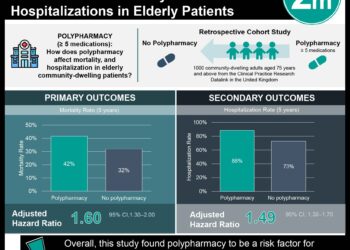Electronic visit billing implementation led to decrease in patient-initiated portal messages
1. In this mixed-methods study, the number of patient-initiated online portal messages moderately decreased with the implementation of e-visit billing.
2. The majority of providers who completed the survey approved of the e-visit billing system, but there were some concerns regarding the operational process and the potential for increased administrative burden.
Evidence Rating Level: 2 (Good)
Study Rundown: Over the last few years, patients have been submitting messages to their healthcare providers online at an increasing rate. These messaging portals have been helpful for patients to communicate with their providers without the need to visit the physician in person. However, healthcare providers have been spending increasing amounts of time responding to messages, increasing their workload. To challenge this, some healthcare facilities have begun to charge these messages as e-visits, which provides compensation for the time spent responding to queries. This study employed a mixed methods approach to determine whether billing online portal messages as e-visits would reduce the number of messages physicians receive. In the six months after implementing the e-visit billing system, less than half of one percent of the messages that were sent were billed by physicians, but the number of medical advice messages decreased by nearly one-tenth compared with the prior period. Further, there was no difference in the utilization of emergency services or likelihood of hospitalization between between patients who did and did not send a message, although those who sent a message were slightly more likely to have an outpatient within the next week. Some limitations of the study were a low survey response rate, the fact that alternative contact methods such as telephone calls were unable to be assessed, and that the complexity of message content was not considered. Despite this, the results showed that the implementation of e-visit billing was associated with a reduced number of patient-initiated portal messages and was approved by the majority of providers in this study.
Click here to read the study in AIM
Relevant Reading: Association between billing patient portal messages as e-visits and patient messaging volume
In-Depth [retrospective cohort/survey]: This study used a combination of retrospective observational pre-post comparison and a prospective online survey to assess provider perceptions of e-visit billing. The survey was randomly distributed to providers at Mayo Clinic locations who responded to online messages in the previous six months. To be eligible for e-visit billing, the message had to be patient-initiated, from an established patient with new or multiple symptoms, and require 5 minutes or more to respond. In the 6 months after billing implementation for e-visits, physicians received a total of 1,653,708 medical advice messages compared to 1,813,818 messages in the prior 6 months (8.8%, P=0.002). Conversely, there was a 5.1% increase in outpatient visits from 1.41 million in the 6 months before implementation to 1.48 million in the 6 months after. Of all messages received after billing implementation, only 5183 (0.3%) were billed. The number of patients who visited the emergency department or had a hospitalization in the subsequent week was similar to those who did and did not send a medical advice message (1.6% versus 1.6%, and 1.7% versus 1.6%, respectively). Half (50.7%) of providers who completed the survey were satisfied with the billing, and over two-thirds (69.2%) reported it took little to no effort. However, many providers (n=40) reported feeling additional burden with limited incentives. Overall, this study found that the amount of patient-initiated portal messages decreased with the implementation of billing for e-visits, and providers were generally accepting of the new billing system.
Image: PD
©2025 2 Minute Medicine, Inc. All rights reserved. No works may be reproduced without expressed written consent from 2 Minute Medicine, Inc. Inquire about licensing here. No article should be construed as medical advice and is not intended as such by the authors or by 2 Minute Medicine, Inc.



![Active smoking cessation intervention may provide tangible results [Project CLIQ]](https://www.2minutemedicine.com/wp-content/uploads/2014/12/smoking-e1418644951268-350x250.jpg)



